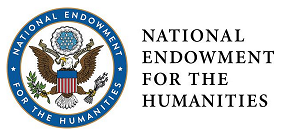Summer Institute for College and University Teachers

Portland State University
July 11
– August 5,
2022
David Hume (1711-1776) was a prominent intellectual of the Enlightenment. His impact, overall, is arguably even greater than luminaries such as Adam Smith and Thomas Reid, on the Scottish front, and Rousseau and Voltaire, on the French side.
Enlightenment inquiry was greatly influenced by the development of the scientific method in the seventeenth century. Hume's first large project, his far-reaching A Treatise of Human Nature, attempted to implement the experimental method in a study of human nature.
Hume's philosophical and historical thought has influenced metaphysics, epistemology, religion, morals, politics, economics, history, and the cognitive sciences. The Institute aims to cover many of these areas, as well as to focus on the relevance of Hume's thought to some contemporary interests: Non-Western philosophy, gender, race, the status of animals, and the environment.
Our goals are: (1) By examining a variety of Hume's contributions, we hope to give faculty and graduate student participants an expansive context and diverse resources to facilitate their own teaching and research projects on the Institute's themes. (2) By studying topics of both traditional and contemporary interest, we aim to offer participants a sample of the engagement of a classical Enlightenment theory with present issues, an approach that they might consider adapting to their own projects.
The Institute is designed to include both formal sessions and informal interactions. We plan to meet on weekdays between July 11 and August 5, from 8 until noon, for presentations by guest faculty of the Institute followed by question-and-answer sessions. In the afternoons, we will offer the opportunity for small interactive group sessions, so that participants with common interests can share ideas on pedagogy and research.
College and university teachers, and advanced graduate students with an interest in Hume, are encouraged to apply. Those employed by museums, libraries, historical societies, and other organizations are also eligible. A stipend of $3,450 will help to defray the cost of travelling to and participating in the 4-week Institute (stipends are taxable income). At least five of the Institute's thirty spaces are reserved for non-tenured/non-tenure-track faculty. Three Institute spaces may be reserved for advanced graduate students. The preference is for a varied representation of backgrounds, stages of career, perspectives, and disciplines among the Institute's Funded Summer Scholars. Details on how to apply are posted on the Application page. The application deadline is March 1, 2022.
Depending on public-health guidelines related to COVID-19, plans for a residential offering of the Institute are subject to change.
David Hume in the 21st Century: Perpetuating the Enlightnment
has been made possible in part by a major grant from the
National Endowment for the Humanities: Democracy demands wisdom.
